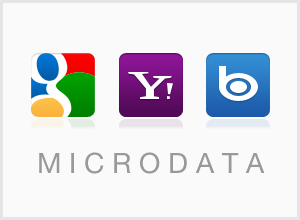 Recently Bing, Google and Yahoo have come together to collaborate on a common vocabulary or markup language for web sites to use to describe their content to search engines. This markup language is explained at Schema.org where more than 300+ categories of content have been defined for web developers to use. Here is an example of their microdata type markup for a corporation:
Recently Bing, Google and Yahoo have come together to collaborate on a common vocabulary or markup language for web sites to use to describe their content to search engines. This markup language is explained at Schema.org where more than 300+ categories of content have been defined for web developers to use. Here is an example of their microdata type markup for a corporation:
 Common Sense based in San Antonio, Texas
Common Sense based in San Antonio, Texas
Because web pages are composed of structured data it is not always easy for search engines to determine the type of content contained in a page. And this has been the problem that those who have been seeking to define the Semantic Web have been trying for many years to solve. These difficulties exist because of nature of language: its ambiguities, context dependence and frequency of changes in the meaning of words. But by adding markup tags that are recognizable to search engines, the task of categorizing pages becomes easier and more precise. The advantage of these markup tags is that their use will generate richer displays in search results.
This effort by the big three search engines is separate from the development that has been going on in the open source community with RFDa (or Resource Description Framework – in – attributes) which is an extension to XHTML for embedding rich metadata within web documents. RFDa offers more flexibility than Schema.org’s tags. The big three have circumvented other standards to define and control their own standard. But while Bing, Google and Yahoo are encouraging the use of their microdata tags, they will still support the use of other rich snippets including RFDa.
For more information, see:
